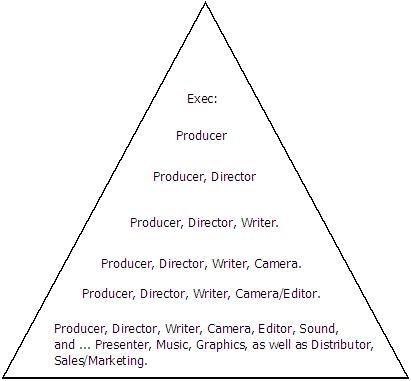Writing is everything.
I'd master it now. Keeping a blog is a sure darned way to do that. Handwritten is fine; find yourself the perfect pen.
Writing, or rather the ability to write.
It is the key to communication, to learning and to e-learning, and a great deal else besides.
On my passport it says 'writer, director.'
I like that, though I think of my skill as a visualiser and the writing and directing is rarely TV, but corporate and classroom training, desk-top learning, and product launches, change brand and change management. Still there can be drama in it, and tears, and death, and love, and life, and music and dance. We go underwater and scale mountains, enter shear caves of nuclear power plants and wade through sewers, track super-models along catwalks in Paris and record the last words of a man dying of cancer in Carlisle.
I see things in pictures.
Perhaps the MA in Fine Art IS what I should have started a year ago ... though I fear I may have missed out.
It's easy enough I find to get my 'hand back in' if I want to draw something as it is rather like riding a bike, or skiing in deep powder snow, or racing a Fireball, or pushing off a wall in Breaststroke and emerging from a legal transition half way down a 25m pool ... once you've put in the days, months, years (even decades) learning to do these things, barring ill-health and great age, you ought to be able to do them for some time to come.
Which reminds me, I want to crack written French in 2011.
Clients think of me as something in addition to writing and directing (I produce), but no. that's not it; there are words, voices, images, cut together and linked in various ways that form linear and non-linear assemblages, but to them I am 'a problem solved', a job delivered, with passion, on time, on budget (of course), sometimes as a team of one, but sometimes in a team of a few or many more. I do wonder if sometimes an email with the finally agreed Creative Brief is the end of the process, rather than beginning.
Today, once you've solved that you can invite everyone to come up with their own creative execution.
Now there's a thought I'd not heard coming.
All of this takes words, expressing and solving the problem and sharing this requires words. A fast, reliable typing speed helps too. So perhaps my Mum was right to get me a typewriter when I was 13 when I wanted an electric guitar.
Sometimes I find the problem for the client and share it with them in all its beautiful ghastliness.
This is what good writing means. And experience. And judgment. And belief. And your approach and thoroughness. And the write people around you. And sometimes conviction that £60,000 will deliver the job, but £600 will not.
Good writing is less about the words chosen and put on the page (unless you are a novelist or poet, and I am neither), no, good writing is a good idea, clearly expressed, in as few words as possible. (Which in due course requires editing something like this).
Who is it who said the selling is a good idea?
That all it takes to sell something, is to have a good idea.
Good writing has a purpose and the author knows how to put the words to work by addressing a problem, because you know your audience and whether you or someone else is the subject matter expert, it is your responsibility, even if the words are hidden by a creative brief, a synopsis, treatments and scripts, to get the message across ... like, with some or many images (photos, graphics, cartoons), or with the spoken words and/or similar images that move ...
A swimming club session plan written on a whiteboard to take a squad of swimmers can be beautifully written if it is magically composed, and serves its immediate purpose. The good swimming coach rarely leaves such things in the head. It is thought-out, it is planned, it fits into the scheme of things, it is the right session for that hour or two.
Good writing hits a chord; it too is of the moment.
I conclude that a good teacher, a good tutor, educator, practitioner of e-learning ... all have this ability to write well at the core of their being. They are confident with words, words that are as carefully chosen even if spoken on the fly, as a result of their experience and all the lesson plans or scripts, or class programmes, they have written in the past that bubble up to the surface when faced with a problem - a fresh student.
(My only caveat is the from the podcasts I've heard before an educator is interviewed they should at least have the wisdom to do some media training).
